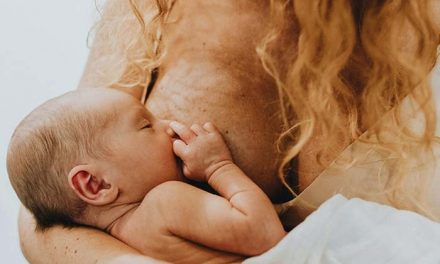When a toddler tries to communicate, the sweet voice is no less than music to the ears. As new parents, you must be excited and probably also worried about how your little one will develop baby language skills.
A significant part of child development is learning to speak. Babies develop their unique way of communication, and it mostly starts from cooing before pronouncing their first clear word.
Learn how your baby will develop language skills and how you can be a crucial part of the process.
Stages Of Baby Language Skills
Your baby’s communication skills develop rapidly in the first year. The vital stages of language development include the time when they begin to connect emotionally with people around them. Some of the crucial signs that show your baby understands emotions involve making eye contact, learning to coo and smile, and seeking attention.
Check out these stages of developing baby language skills:
Cooing stage (0-6 months): During the first six months, the baby learns to smile, makes cooing sounds and utters vowel/consonant sounds. You might hear the infant say oo, aa, uu, m, p, etc.
Babbling stage (6-9 months): It is when your baby starts to make repetitive patterns of vowel/consonant sounds. For eg: ma/ma, pa/pa, mum/mum , etc.
One-word stage (9-18 months): Soon after the baby turns nine months old, they tend to communicate using single words. Up to 18 months, they might learn to speak clear words like no, yes, stop, go, doggo, etc.
Two-word stage (18-24 months): During this period, you will hear short two-word sentences. Your little one may now frame tiny sentences to express themselves. For eg: mamma doll, cat meow, etc.
Each baby takes his/her time to reach the language development stages. The age window is approximate, and you need not worry if your baby seems a little slower than the predefined stages.
Role As A Parent In Building Baby Language Skills
While a baby should move at its own pace, a slight push of encouragement from parents always helps. Here’s what you can do to help your child learn their first language.
Talk to them: A baby’s first teacher is his/her parents. Make sure you converse with your infant frequently and help them find their words.
Narrate your day: Share your daily activities with your child as you do. If you are cooking, talk about the act. It helps them relate actions to words.
Use simple words: Babies don’t understand difficult words. Start by speaking short baby words like ma, pa, aaa, ohh, etc. When you use words within your kid’s range, they can easily copy them to form their unique sound string.
Make gestures as you talk: Visuals fuel a baby’s understanding of language. Clap when you teach them a song or point out things while talking. Expressions and gestures convey an explicit meaning of the words, making them easier to remember.
Read to your child: Start with kids’ story books! Reading to a child builds their understanding of images and words as they see colorful images and listen to rhyming words. It also instils a love for learning and reading, ultimately growing their imagination.
Sing to the infant: Rhyming words and rhythm stay with us longer, let alone their impact on a kid! Singing to your baby will make learning exciting and encourages them to sing along.
What’s the right time to start talking to your baby? The earlier, the better. An infant begins to address emotions and depict actions from the third month. By starting early, you enable smoother brain development of your child.
Milestones For Babies
Health professionals scale baby language skills into a series of milestones. By getting an idea of these milestones, you can understand their language and speech development stages better.
By three months: Your child starts recognizing and responding to your voice, makes cooing sounds, smiles at your sight, and cries for needs.
By six months: Your little one will start babbling and using their voice to show pleasant and unpleasant emotions. When you play songs for them, they pay attention by moving their eyes towards the sound.
Click here to know more about newborn milestones for 3-6 months.
By twelve months: Soon after your kiddo turns one, they start speaking a few words, such as mama, papa, no, etc. They also respond to easy instructions like stop, come here, sit, etc.
By eighteen months: The baby remembers/recognizes the names of familiar objects, people, and body parts. By this time, their vocabulary includes as many as ten words!
Conclusion
Seeing your child grow is a mesmerizing experience for parents. When you become a part of their journey of developing baby language skills, you also form a powerful bond. Ensure you’re around to encourage them to interact and show that their words matter.






